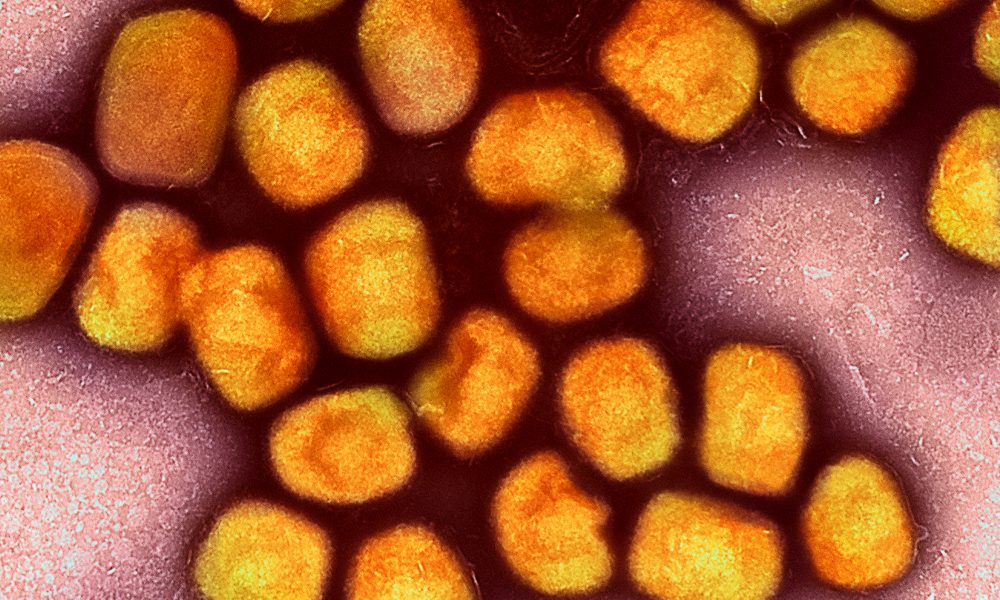When Dr. Caroline Castillo signed a contract with Marion County to serve as public health medical director for the year, she didn’t know she would spend much of the summer preparing for a monkeypox outbreak.
Public health officials in Salem realized around the end of June that the hMPXV — the virus commonly known as monkeypox — was soon likely to make its way to Marion County. Castillo said they started holding calls with local health providers, urging them to test for the virus.
Now, as state health officials recently confirmed a single case of monkeypox in Marion County, Castillo said there is a sense of urgency in her department to get vaccines out to those in the community who are at greatest risk for exposure and illness.
Castillo is also an assistant professor of medicine for Oregon Health & Sciences University’s Division of Infectious Diseases and provides service at the hospital about four weeks per year, but she works primarily in Salem.
She said county health officials are concerned about whether there is enough local testing happening for the virus. There is no easy way to measure that, she said, because there are many options for testing including the state’s public health lab and commercial labs.
The full scope of monkeypox spread “is kind of difficult to track down, and I think that’s an issue that is shared kind of nationwide,” she said. “We all hope that we’re doing enough testing to detect cases in the community as quickly as possible.”
Castillo said she worries that may be a reason why state data shows just one case in Marion County despite it being Oregon’s fifth-largest county.
There are 68 confirmed cases and 48 presumptive cases of monkeypox in Oregon, according to Oregon Health Authority data last updated Wednesday.
Of those infected, 112 are male and four are female.
Other counties with confirmed cases are Multnomah with 73, Lane with 20, Washington with 16, Clackamas with four, and Columbia and Coos with one each.
The person infected in Marion County became ill and was diagnosed “in the last few weeks,” Castillo said on Aug. 11.
She said the public health department is providing limited information about the single case to protect confidentiality.
“We would want, you know, community members to feel comfortable going into their provider and saying, ‘I am concerned about hMPXV,’ she said.
The antiviral drug Tecovirimat, or Tpoxx, is a treatment that prevents monkeypox from spreading to uninfected cells, but health care providers do not yet know how effective it is, according to reporting from Oregon Capital Chronicle. State health officials say the virus is rarely fatal.
Anyone who thinks they may have been exposed to monkeypox or notices a new, suspicious rash should contact their health provider and request testing, she said. Those who don’t have a provider can call 211, a nonprofit call line that connects people to local resources like rental assistance, job training or disaster help.
“We certainly don’t want people to to suffer in silence,” she said.
The virus is disproportionately impacting Hispanic residents, who make up about 27.6% of Oregon’s cases. Hispanic or Latino people make up about 14% of the state’s population, according to 2021 census data.
She said the health department is intent on distributing the vaccine, which is in limited supply to those disproportionally affected — men and transgender women who have sex with men, men, as well as the Latino community.
“People in our community who have had recent history of certain sexually transmitted infections, we may reach out to them to initially offer the vaccine,” he said.
Castillo said Marion County received 100 doses of the vaccine on Aug. 11
Hundreds of Oregonians have been vaccinated against monkeypox, but a vaccine approved for use against the virus is in short supply.
Castillo recommended that anyone infected isolate at home and away from household members, use a separate bathroom, keep their rash covered while at home and wear a mask to prevent transmission through large droplets. Other household members should avoid using materials like towels and bedding that may have touched a person’s rash, and only share utensils that have been properly washed.
The virus is primarily spread through close, skin-to-skin contact with lesions or a rash at different stages. Castillo said questions remain about at what point people become contagious.
“Our understanding at this time is that the period of contagiousness starts when someone first develops symptoms, and we’re seeing in this outbreak that it’s a lot of times the rash is the first symptom that’s detected,” she said. But those who experience fevers, chills and muscle aches would become contagious throughout the time all their lesions are healed, scab over and fall off. That can take up to four weeks.
“The legions can become very, very painful,” she said. “People have required hospitalization for pain control, pain management, and I think part of that depends on severity of disease, but also the location of the lesion.”
She said rectal or urethral lesions can make simple things like going to the bathroom extremely painful and lead to long term complications.
“We all need to recognize that there’s no shame in having this infection, this is not, you know, the, as leaders have said before, this is not a gay disease, this is not a sexually transmitted infection,” she said.
Before the recent outbreak, the virus was primarily crossed over from animals to people through casual contact, she said.
“We need to, as much as possible, just normalize this,” she said. “Fortunately this is something we have medication already, we have vaccines, to prevent. I think we’re so much further along than we were at the start of the Covid outbreak in terms of controlling this.
Contact reporter Ardeshir Tabrizian: [email protected] or 503-929-3053.
JUST THE FACTS, FOR SALEM – We report on your community with care and depth, fairness and accuracy. Get local news that matters to you. Subscribe to Salem Reporter starting at $5 a month. Click I want to subscribe!

Ardeshir Tabrizian has covered criminal justice and housing for Salem Reporter since September 2021. As an Oregon native, his award-winning watchdog journalism has traversed the state. He has done reporting for The Oregonian, Eugene Weekly and Malheur Enterprise.









